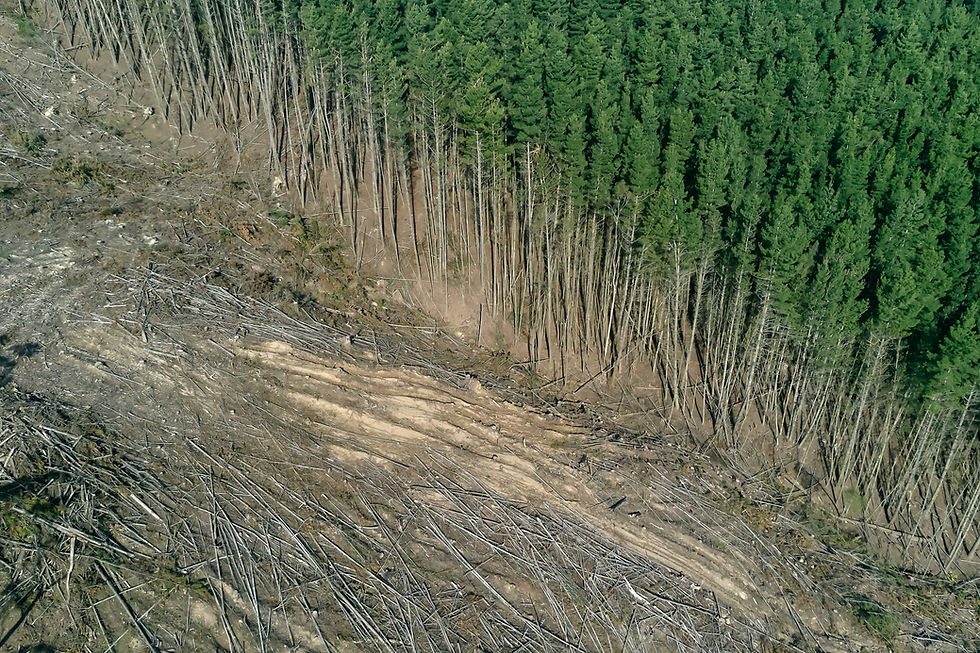Dr. Seuss, a beloved author known for his whimsical tales and vivid characters, gifted us a timeless warning in 1971 with his book "The Lorax." While it may have seemed like a simple children's story at the time, its profound message has grown increasingly relevant over the decades. The Lorax's cautionary tale about the consequences of environmental destruction serves as an eerie prediction of our current predicament. In this blog post, we will explore the parallels between the world of "The Lorax" and our own, emphasising that humanity should not be surprised by the dire consequences we face today due to our lack of respect for nature.

The Lorax: A Tale Ahead of Its Time
Dr. Seuss wrote "The Lorax" in 1971, a time when environmental awareness was still in its infancy. The story revolves around the Once-ler, a character who exploits the Truffula trees to create a profitable industry. The Lorax, a guardian of the forest, speaks for the trees and warns against the environmental devastation wrought by the Once-ler's greed. The Once-ler's relentless exploitation leads to the near-extinction of the Truffula trees and the decline of the once-vibrant ecosystem.

Parallel Timelines: From 1971 to the Present:
Industrialization and Environmental Exploitation
Since the release of "The Lorax" in 1971, humanity's industrialisation and resource consumption have surged exponentially. The parallel between the Once-ler's insatiable desire for profits and our own addiction to economic growth is striking. We've witnessed the relentless expansion of industries such as agriculture, mining, and fossil fuels, leading to deforestation, habitat loss, and pollution.


Disregard for Conservation
The Lorax serves as a poignant reminder of our disregard for conservation. Over the years, we've witnessed the decline of countless species, deforestation at an alarming rate, and the pollution of air and water resources. The warnings of the Lorax are mirrored in the cries of environmentalists and scientists who have urged us to protect our planet.


Ignoring the Lorax's Wisdom
Perhaps the most chilling parallel is our tendency to ignore the Lorax's wisdom. Just as the Once-ler dismisses the Lorax's warnings, our society has often brushed aside the voices advocating for environmental stewardship. The Lorax's plea, "Unless someone like you cares a whole awful lot, nothing is going to get better. It's not," serves as a stark reminder of our collective responsibility to act.

Beyond Tipping Points
"The Lorax" illustrates the concept of tipping points—the point of no return where ecosystems collapse irreversibly. In the real world, we've seen alarming signs of environmental tipping points, from the melting of polar ice caps to the increase in extreme weather events. We are now facing a climate crisis that we could have averted if we had heeded the Lorax's warnings.
Conclusion: The Time to Act Is Now
Dr. Seuss's "The Lorax" was not merely a children's story; it was a prophetic warning about our disregard for nature and the devastating consequences that would follow. As we find ourselves in a climate crisis and beyond environmental tipping points, we cannot act surprised. The signs were there all along, in the pages of a book written over half a century ago.

We must recognise that it is not too late to change our ways and take action to mitigate the damage we have caused. Just as the Lorax implored, we must care "a whole awful lot" and make meaningful changes in our lifestyles, industries, and policies to protect our planet. The lessons of "The Lorax" serve as both a reminder of our past mistakes and a beacon of hope for a more sustainable future—one where we heed the warnings of the Lorax and cherish our natural world.


Hozzászólások